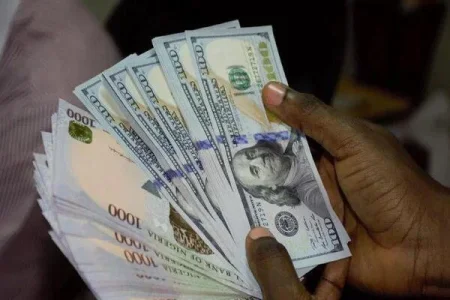
Despite intervention by the Central Bank of Nigeria, the Naira fell to a two-month low, reversing earlier gains. With significant market volatility and upcoming rate decisions, the Naira's decline raises concerns about Nigeria's economic stability and investor confidence.
The Central Bank of Nigeria’s intervention this week failed to prevent the Naira from sliding to a two-month low, with a crucial rate decision looming on Monday. The Naira weakened by 5.1% on Thursday, falling to 1,533.99 against the dollar, its weakest level since March 20, according to FMDQ, the trading platform that sets the official rate. This drop reversed a 4% gain from the previous day after the central bank sold dollars in the market to boost liquidity.
The intervention involved the Central Bank selling between $80 million and $100 million, according to Samir Gadio, head of Africa strategy at Standard Chartered Bank. This action temporarily more than doubled the foreign exchange market liquidity to $289 million on Wednesday, following additional dollar sales on Monday.
Under President Bola Tinubu's administration, which marks its first anniversary on May 29, the Naira has experienced significant volatility. The government devalued the currency twice in the past year to attract investors and restore credibility. Despite these efforts, the Naira's performance has been unstable, appreciating 40% from mid-March to early April before weakening by 24% over the past month.
Market participants remain concerned about the $1.3 billion of Naira futures contracts maturing in late May. “The key question now is whether most offshore investors holding the May futures contract will buy dollars or reinvest Naira proceeds in local debt,” Gadio noted.
The Central Bank’s monetary policy committee is scheduled to meet next week and is expected to raise interest rates further to maintain foreign investor interest in Nigerian securities. The regulator has already increased rates by a cumulative 600 basis points over two meetings in February and March, aiming to curb inflation, which is currently at a 28-year high.
As the Central Bank continues to grapple with these challenges, the Naira’s ongoing slide underscores the complex dynamics of Nigeria’s economic landscape. The upcoming monetary policy decisions will be crucial in determining the next steps for stabilizing the Naira and restoring investor confidence.




